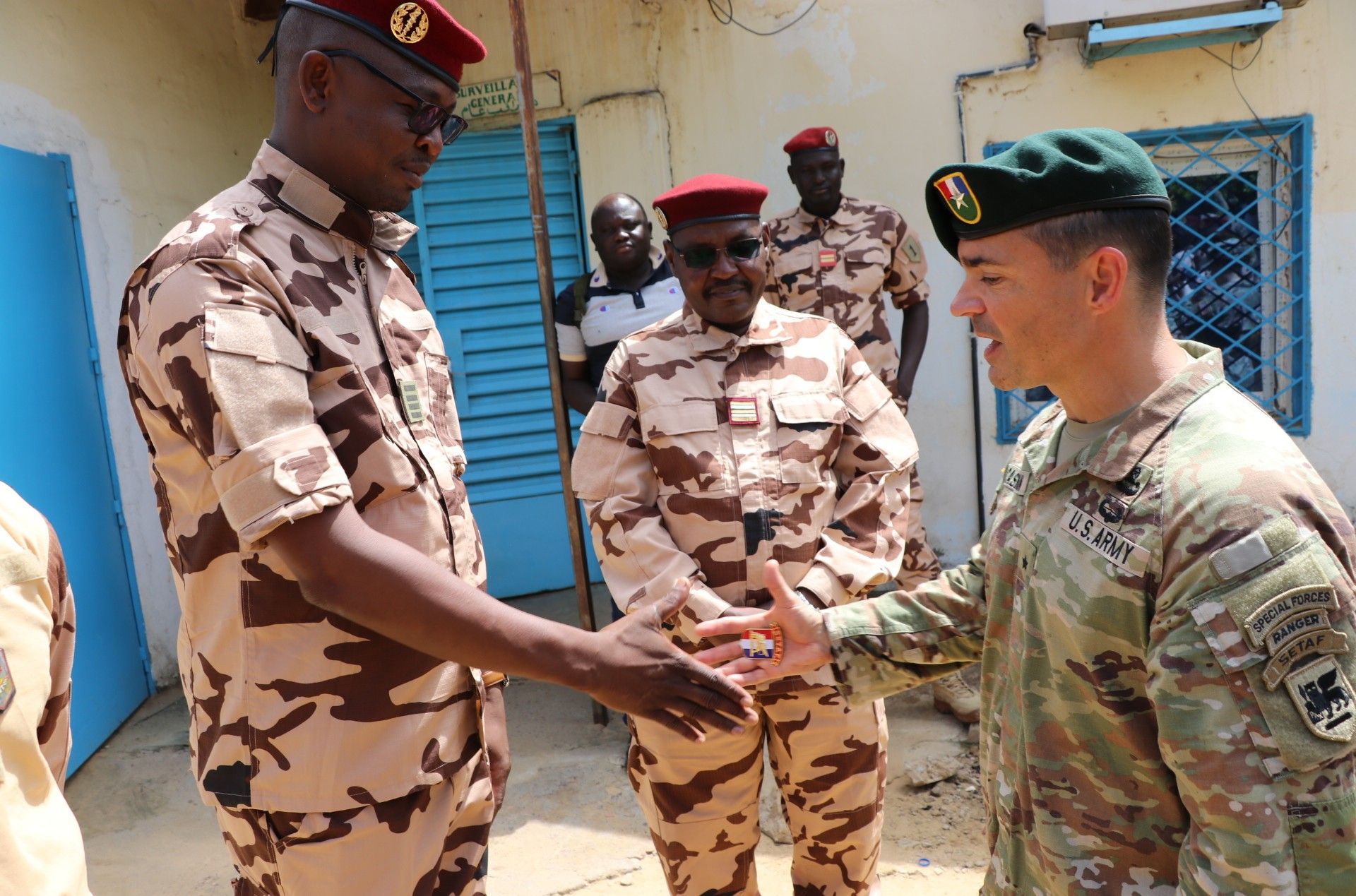The U.S. military presence in Central and West Africa is proving increasingly unwelcome. On Wednesday, the State Department announced that the U.S. would soon begin “an orderly and responsible withdrawal” of its more than 1,000 U.S. service members currently deployed in Niger.”
A mere 24 hours later, came reports that the Pentagon will withdraw its 75 Army Special Forces personnel as early as next week from neighboring Chad amid uncertainty about whether Washington’s status of forces agreement with that sprawling country can continue or be renegotiated.
The U.S. has tried to ingratiate itself with military regimes in both countries, hoping to preserve longstanding counterterrorism ties and to maintain military assets, including a $110 million drone base in the Nigerien city of Agadez that acted as the hub for surveilling much of the entire Sahel even in its April 24 announcement, the State Department stressed that Washington “welcomes [the junta’s] interest in maintaining a strong bilateral relationship.”
Yet the growing rejection of the American military in Africa’s Sahel region shows that the U.S., blatantly sacrificing democratic principles on the altar of supposed security ties, ultimately wound up with neither.
The past four years have seen political upheaval in the Sahel, including two trends that have interacted to produce the current rebukes to Washington: a spate of military coups and a sharp rise in anti-Western — especially anti-French — sentiment. Anti-French sentiment is not new in the Sahel, and legitimate grievances exist there concerning both the colonial past and France’s intensive political, economic, and military influence in the present.
Yet the past decade has seen anti-French sentiment take new forms and reach a new generation. In particular, many Sahelians were disillusioned by the aftermath of France’s Operation Serval in Mali in 2013; an initially successful counter-jihadism mission turned into an interminable regional counterterrorism quagmire, all while many people’s daily security degraded in Mali and two of its neighbors, Burkina Faso and Niger.
The coups in the Sahel, which spread one after another across the region beginning in 2020, responded to popular outcries over insecurity and removed civilian elites who had long been deferential to France.
Niger’s 2023 coup, on the heels of takeovers in Mali and Burkina Faso, has replicated a playbook that the Malian and Burkinabe juntas had sketched earlier — drape oneself in the flag, proclaim a renewed vigor and determination against jihadists, kick out the French military and other Western-backed security partners, and increase cooperation with Russia.
The U.S. government read the changing signals slowly and poorly, and thought it could simultaneously win the Nigerien junta over and dictate terms — an incoherent and ultimately ineffective approach.
The Chadian situation has different dynamics but is clearly trending towards a similar outcome. Chad’s coup in 2021 was not to overturn the system but to preserve it — when long-time autocratic president (and loyal friend to Paris and Washington) Idriss Deby was killed in battle, his son Mahamat and a cadre of regime insiders conducted a palace coup to maintain power. France and the U.S. made little pretense of caring about democracy, but rather embraced Mahamat Deby and appeared to accept the (sometimes bloody) “transition” as a fait accompli. Indeed, Washington seemed keen to deepen its relationship with N’Djamena.
As with other countries in Africa, Washington tried to pre-emptively scare the Chadian government concerning the Kremlin-linked Wagner Group and alleged Russian ambitions in the region. Ultimately, however, it seems the Chadian authorities are weighing domestic imperatives, and may be distancing themselves from the U.S. as Deby campaigns for presidential elections — which he will almost certainly win — on May 6.
One reason U.S. appeals to juntas seem to fall flat is that Washington’s approach to counter-jihadism in the region, meanwhile, is shot through with contradictions; at one moment, the U.S. trains African soldiers for flashy urban raids (ignoring actual trends in violence), and at the next, it lectures African militaries, not so convincingly, about respecting human rights.
Although militaries in the region have appeared grateful for U.S. hardware and training, they place greater confidence in heavy-handed ground and air operations against suspected jihadists — an approach that often backfires, but that juntas show no signs of relinquishing. Whereas Paris and Washington prize assassinations and raids against high-value targets, Sahelian militaries effectively want body counts. (Neither approach, for the record, has resulted in consistent security gains for ordinary people.)
The U.S. has not only misread the juntas, it continues to botch even the withdrawal from Niger. In its last-ditch negotiations with Niger, the U.S. has come across as desperate. In Senate testimony last month, the head of the U.S. Africa Command, or AFRICOM, Marine Corps Gen. Michael Langley warned that Russia is “trying to take over central Africa as well as the Sahel [at an accelerated pace].”
On the same day as the State Department’s announcement on Niger, Joint Chiefs Vice Chairman Admiral Christopher Grady told the Associated Press, “We certainly want to be there. We want to help them, we want to empower them, we want to do things by, with and through (them).” The cliché of “by, with, and through” is an old one, and it is striking that the military’s language remains littered with stock phrases even as the politics surrounding African deployments shift so quickly.
The U.S. could send a different signal by not resisting its expulsion so hard, by simply cutting its losses and withdrawing. Calls for the U.S. to act vindictively and cut development aid, meanwhile, would lead Washington down an even worse path. The best thing Washington could do now would be to pull out troops, wait for the political situation in the Sahel to evolve, and then consider what kinds of non-security partnerships might be beneficial for all sides.
















